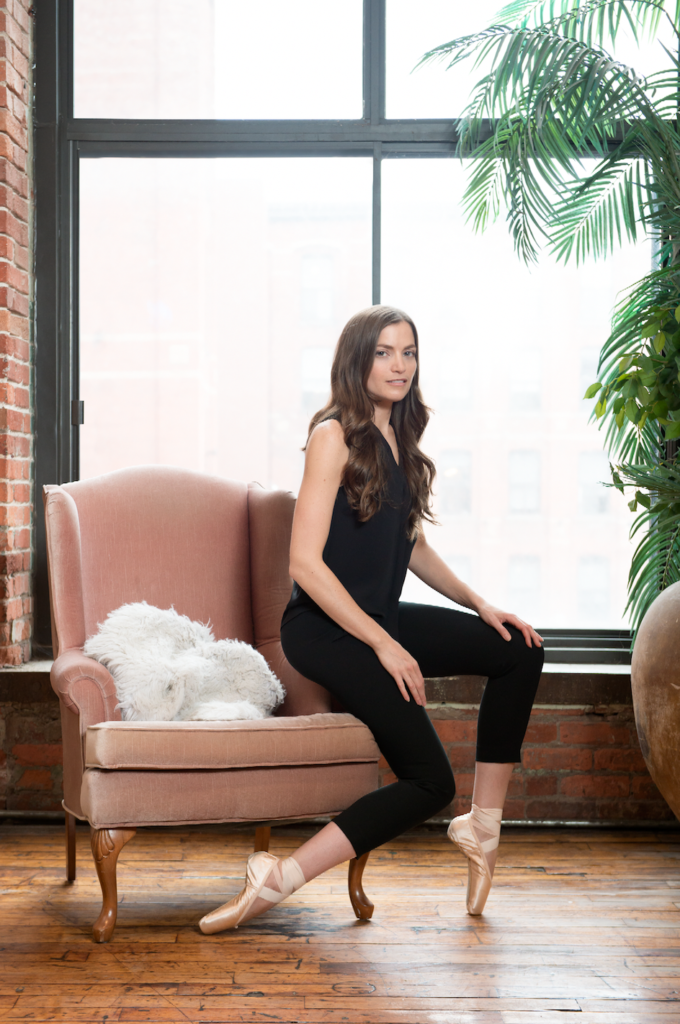Creativity is inherently human, but innovation is an art form. Marie Eve Gosemick is an artist that uses her creativity to innovate in dance and in business. Gosemick is a dancer, a writer and an active thinker. She is also the Founder and Brand Storyteller at Narractive, a company that aims to bridge the gap between corporate culture and brand.
This week I had the pleasure of sitting with her for a one on one conversation. Speaking with Marie about Design Thinking was like dancing to a new found melody: it had rhythm, it was meaningful and poetically beautiful. Here is what we talked about:
RG – Hi Marie, could you tell our readers a little bit about yourself?
MG – I’m Marie Eve Gosemick. I’m a bit of a travelling business ballerina. I live in Montréal, Canada, but I’m currently completing an executive program in change leadership at York University in Toronto. My forever hobbies turned into side careers. I enjoy creative writing, dancing and exploring the world (I’ve been on four continents just this year). Besides being a marketing consultant, I’m a published fiction writer and a ballet fitness trainer. Confused about my profile? I’m a true T-shaped. The first time I took a design thinking workshop, I thought right away “I’ve found my people!”.
RG – T-shaped indeed! How would you describe your work?
MG – In short, I’m a corporate brand storyteller. I specialise in B2B marketing and rebranding. I launched my own company, Narractive, earlier in 2018 to turn business actions into words. I don’t just create branded content. I’m involved right from strategy development to craft my own creative brief. Often in rebranding, companies expect copywriters to simply repackage old sayings. I’m transitioning into change leadership rather than pure rebranding to dig beneath the surface. Innovation methodologies like Design Thinking help leadership teams and employees participate in the creative process. It allows everyone to connect the dots.
RG- Why do you think innovation is important in your field of work?
MG – People buy meaning. Simply put, a brand is a promise to a user (customer). As long as it’s user-centric, brand innovation is a must to adapt to changing needs. Established players tend to focus too much on the competition, which can result in the continuous improvement of soon-to-be irrelevant products and services. When brands no longer make life easier, then what they still claim to be no longer makes sense. A framework for human-centred innovation like design thinking leads brands to anticipate or even cause market disruption and to rebuild their story accordingly.
RG – When was the first time you heard about Design Thinking?
MG – The very first time was in the September 2015 issue of Harvard Business Review (“The Evolution of Design Thinking”). I thought it was another buzzword, some academic method disconnected from practice, but really it’s about design “doing” as much as design “thinking”. In January 2017, I started working with an organisational development firm that facilitate co-creation sessions, and I got quite interested in this practical approach to solving complex problems. In fact, I felt like it’s a mindset I’d been applying for years without even being aware of it.
RG – You have attended our Echos’ Design Thinking Experience course. How do you think the knowledge you brought back to your company can positively impact your industry?
MG – To speed up idea generation and market validation. The pace from insights to ideas to solutions keeps everyone on their toes! Also, and perhaps most importantly, creating analogies to create insights helps teams see the real problem. When it comes to rebranding, marketers often act as know-it-alls. Design thinking is a good way to forget what we think we know.
RG – What were your biggest learnings during Echos’ Design Thinking course?
MG – How to build creative confidence through collaboration and experimentation. We’ve actually made the book from IDEO’s Kelley Brothers come alive! As a true artist, showing off creativity is fairly easier than in the business world since there is a disconnection from reality, that is, budgets, sales targets and market shares. At work, making mistakes and welcoming imperfections seem counterintuitive, but it’s so much faster (cheaper!) than spending days overplanning what may be completely wrong. The mantra “build to think” for rapid prototyping is actually a relief. How to know when to diverge (expand our knowledge) and when to converge (focus our mind) in the process is another big learning. I’ve also enjoyed practising effective brainstorming techniques such as “Yes and”, “I’m an Alien” and “What if”. My favourite is the one you’ve got from WorkPlayExperience to warm up the brain using Tai Chi.
RG – Did you learn anything new about yourself because of our course?
MG – You know how we were constantly being reminded to fall in love with the problem, not the idea? Well, I always fall in love with the persona! As a fiction writer, I’m used to envisioning characters, which requires a great deal of empathy in order for readers to relate to them. When you can imagine your persona sitting right next to you, then you might have connected with the real problem. I never forget to include the persona in the “How Might We” question. I realised that using customer journey maps to synthesise insights and organising ideas into a storyboard are probably my most natural strengths.
RG – Are you currently working on a project and applying using Design Thinking methodologies?
MG – I’m currently working with a few change leadership methodologies, namely World Café, SOAR (rather than SWOT) and Force-Field Analysis. Putting people first and focusing on the positive help overcome resistance to change to shape a common future. I look forward to working mostly with design thinkers!
RG – What pearls of wisdom would you share with someone who is starting their innovation journey through Design Thinking?
MG – Besides what I’ve mentioned earlier, here are a few more recos: search for extreme users. Don’t obsess over a solution. Identify stakeholders (and challenge the list). Listen about 80% of the time (don’t do the talking!). Know when to stop (because some people can go on and on and on).
RG – On the spirit of not going on and on, is there anything else you’d like to share about your experience?
MG – I’m amazed by the universal nature of this methodology (mindset). I took Design Thinking workshops in English in the US and in Canada, in French in my hometown, and now in English (with some exposure to Brazilian Portuguese) while being in Australia on business. It works everywhere! That’s what’s called a human-centred approach.
RG – Finally, could you share a quote that inspires you?
MG – “Start small, start now.” I don’t think this quote belongs to anyone in particular, but it has really struck me at C2 Montréal 2018 when Suzanne Gibbs Howard from IDEO used it to open her Design Thinking workshop. This applies to any behaviour change!
RG – It was an immense pleasure talking to you, Marie. Thank you.
MG – Thank you.
—
Follow us on social
Instagram – Facebook – LinkedIn
How Can We Help?
For training and Innovation Journeys in your company: check out our in-house course offering
For upcoming courses in your region: visit our website.
If you have a special project and would like to use Echos’ consultancy services: send us an email.



